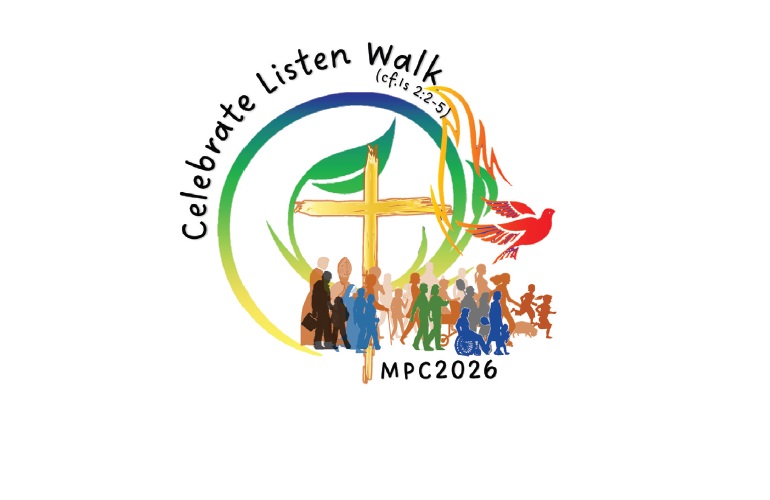Peninsular Malaysia prepares for the Regional Pastoral Assembly
The Regional Pastoral Assembly (RPA) for Peninsular Malaysia, scheduled for August 25-27 at Majodi, Plentong, is designed to harmonise the call towards synodality within the rich pastoral heritage of the Church of Peninsular Malaysia.
Apr 04, 2024

KUALA LUMPUR: The Regional Pastoral Assembly (RPA) for Peninsular Malaysia, scheduled for August 25-27 at Majodi, Plentong, is designed to harmonise the call towards synodality within the rich pastoral heritage of the Church of Peninsular Malaysia.
Msgr Jude Miranda, the chairperson of the Peninsular Malaysia Pastoral Team (PMPT), said this during the Peninsular Malaysia Pastoral Team (PMPT) core team meeting held in March.
He then presented the pastoral journey from the time of the Aggiornamento in 1976, leading towards the Malaysia Pastoral Convention (MPC) in 2026. The MPC will be the first that sees participation from all the dioceses in Malaysia.
Fr Dr Lawrence Ng then continued with the proposed pastoral process for the RPA. He said that the RPA (Peninsular Malaysia Pastoral Convention V) is to work towards bridging the pastoral direction of the Peninsular Malaysian Church since 1976, with the call for a Synodal Church so that we may move on with one path in our pastoral orientation.
He then shared on the process for the three days, focusing on:
Celebrate (Day 1) - celebrating our History and its Harmony with the call to being a Synodal Church
Listen (Day 2) participating by our Active Listening and Communal Discernment based on what took place at the diocesan assemblies. He put forward a few proposals on how they can proceed with this.
Walk (Day 3) Here Msgr Jude said that the process will take us through the journey of conversion, embracing the spirit of communion and enhancing the call for mission as we move towards MPC2026 and beyond.
Fr Lawrence reminded those present that “we have to keep in mind that we want a process that is not ‘top-down’ but flows up from the grassroots to the ‘top’.
Msgr Peter Ng emphasised that the MPC template is a guide, as the process towards MPC is still evolving. The focus of the RPA is on Family, Church, Ecology, and Society (FCES), with each parish contributing to the diocesan pastoral assembly and, subsequently, to the regional assembly.
Msgr Peter explained that the RPA is linked to MPC 2026 and stressed the importance of the Synodal process in fostering conversion, especially through Spiritual Conversations. He stressed the holistic view of all areas as part of the Body of Christ, calling for conversion and communal journeying.
Cardinal Sebastian Francis endorsed the focus on conversion over starting new projects in dioceses, appreciating the discussions on synodality, spiritual conversation, and communion. He noted the heavy workload of the dioceses and was not in favour of further burdening them.
Bishop Bernard Paul expressed support for the pastoral approach of Celebrating, Listening, and Walking for the RPA. He emphasised the significance of celebrating history from 1976 to the present, focusing on remembering, recollecting, and renewing for the past, present, and future. In terms of listening, he highlighted the importance of prioritising key areas due to the limitation of attention, leading to the selection of four focus areas. This listening process involves understanding what happened, what is currently happening, and what needs to happen in these areas. He suggested that Spiritual Conversations would facilitate the discovery of new narratives within these focus areas. Bishop Bernard linked Walking to the mission and the journey towards synodality. He posed questions about evaluating past practices, identifying areas needing improvement, and considering necessary changes.
Archbishop Julian Leow emphasised the importance of collating the findings from the three dioceses on the four focus areas. These findings should be summarised into a booklet to analyse convergences, considerations, and proposals. Presenting this booklet at the RPA could facilitate progress towards the MPC, particularly considering new advancements and challenges.
The committee agreed that in principle, each diocese (Kuala Lumpur, Penang and Malacca Johore) will be represented by 150 persons comprising clergy, religious and lay leaders. An additional 50 places will be set aside for volunteers.
In conclusion, Msgr Jude said that the RPA aims to affirm the journey of the Church in Peninsular Malaysia, enhancing the common priesthood and emphasising baptismal identity as participants seek concrete takeaways to bring back to their dioceses.







Total Comments:0